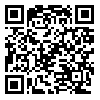Volume 13, Issue 4 (3-2012)
yafte 2012, 13(4): 29-38 |
Back to browse issues page
Download citation:
BibTeX | RIS | EndNote | Medlars | ProCite | Reference Manager | RefWorks
Send citation to:



BibTeX | RIS | EndNote | Medlars | ProCite | Reference Manager | RefWorks
Send citation to:
Salarifar M H, Pouretemad H R. The relationship between metacognitive beliefs and anxiety and depression disorder . yafte 2012; 13 (4) :29-38
URL: http://yafte.lums.ac.ir/article-1-640-en.html
URL: http://yafte.lums.ac.ir/article-1-640-en.html
Faculty of education and Psychology,Khorramabad, Iran
Abstract: (22558 Views)
Background : Metacognitive beliefs interact with emotional disorders and this matter can be used in educational programs and psychological interventions. The purpose of this study was to investigate the relationship between metacognitive beliefs and anxiety and depression.
Materials and Methods: In this correlation study, at first, 140 persons were chosen with cluster sampling method. They completed 3 questionnaires including Cartwright-Hatton and Wells metacognition questionnaire, Cattell Anxiety questionnaire and Beck depression questionnaire. Then we used multiple regression, in order to analyze 117 persons' data ( 84 males, 33 females), who had average age 31.6 with standard deviation 6.8.
Results: The results indicated that there is a positive relationship between metacognitive beliefs anxiety and depression. Metacognitive beliefs, correlation coefficient with anxiety was 0.59 and 0.67 with depression. Two metacognitive belief's components, cognitive competence and uncontrollability, can predict 40% of anxiety variance and 50% of depression variance. Moreover, belief's component about uncontrollability and belief about cognitive competence have positive relations with trait anxiety and belief's component about uncontrollability has positive relation with state anxiety.
Conclusion: The results of this study, like other previous researches, show that paying attention to metacognitive beliefs in educational programs and psychological interventions can be effective in prevention, decrease and treatment of emotional disorders.
Type of Study: Original Research |
Received: 2012/03/4 | Accepted: 2021/07/12 | Published: 2012/03/15
Received: 2012/03/4 | Accepted: 2021/07/12 | Published: 2012/03/15
Send email to the article author
| Rights and permissions | |
 |
This work is licensed under a Creative Commons Attribution-NonCommercial 4.0 International License. |





